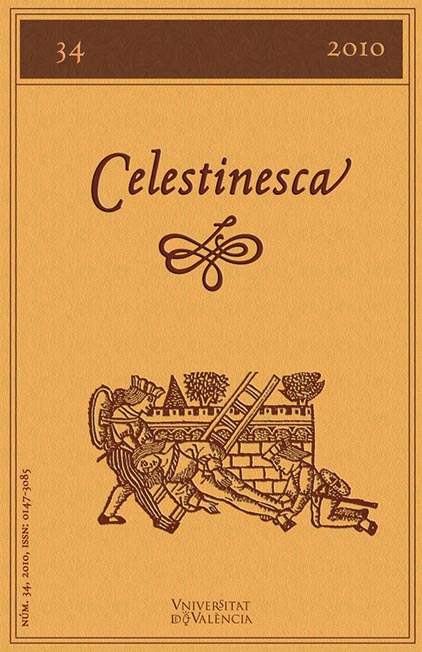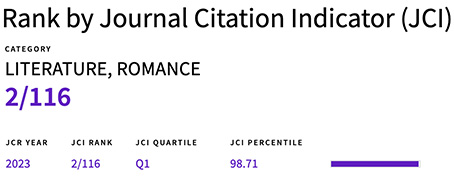El reloj, la hora y la economía del tiempo en La Celestina
DOI:
https://doi.org/10.7203/Celestinesca.34.20122Keywords:
Celestina, time, clock, telling time, hour Abstract
Abstract
Celestina faithfully portraits an era when the bells of a public clock —private clocks were rare— ruled the by then fast-paced urban life. The clock and its marking of time provide the backdrop to the action, make the development of the plot agile, and reinforce several central themes. The characters' compulsion to know the time and their difficulties in determining it, as well as the disagreement between their perception of the time passing and the inflexible rhythm of the mechanical clock, contribute to the famous existential malaise in Celestina. The clock, which is never seen but is always present, reinforces also the central themes of the fugacity of time, and the importance of grabbing the opportunity when it knocks.
 Downloads
Downloads
Downloads
Published
How to Cite
-
Abstract350
-
PDF (Español)298
Issue
Section
License
![]() Celestinesca is committed to the dissemination of knowledge, that is why access to its contents is free and is ruled by a Creative Commons Attribution-NonCommercial-NoDerivatives 4.0 license.
Celestinesca is committed to the dissemination of knowledge, that is why access to its contents is free and is ruled by a Creative Commons Attribution-NonCommercial-NoDerivatives 4.0 license.
Authors retain the rights to their works. Therefore, they can disseminate them and deposit them in the repository, institutional or not, that they wish. However, they are kindly requested to do so by providing the full bibliographic reference and the corresponding DOI.
Celestinesca does not charge authors for submitting, processing, reviewing or publishing their articles.





